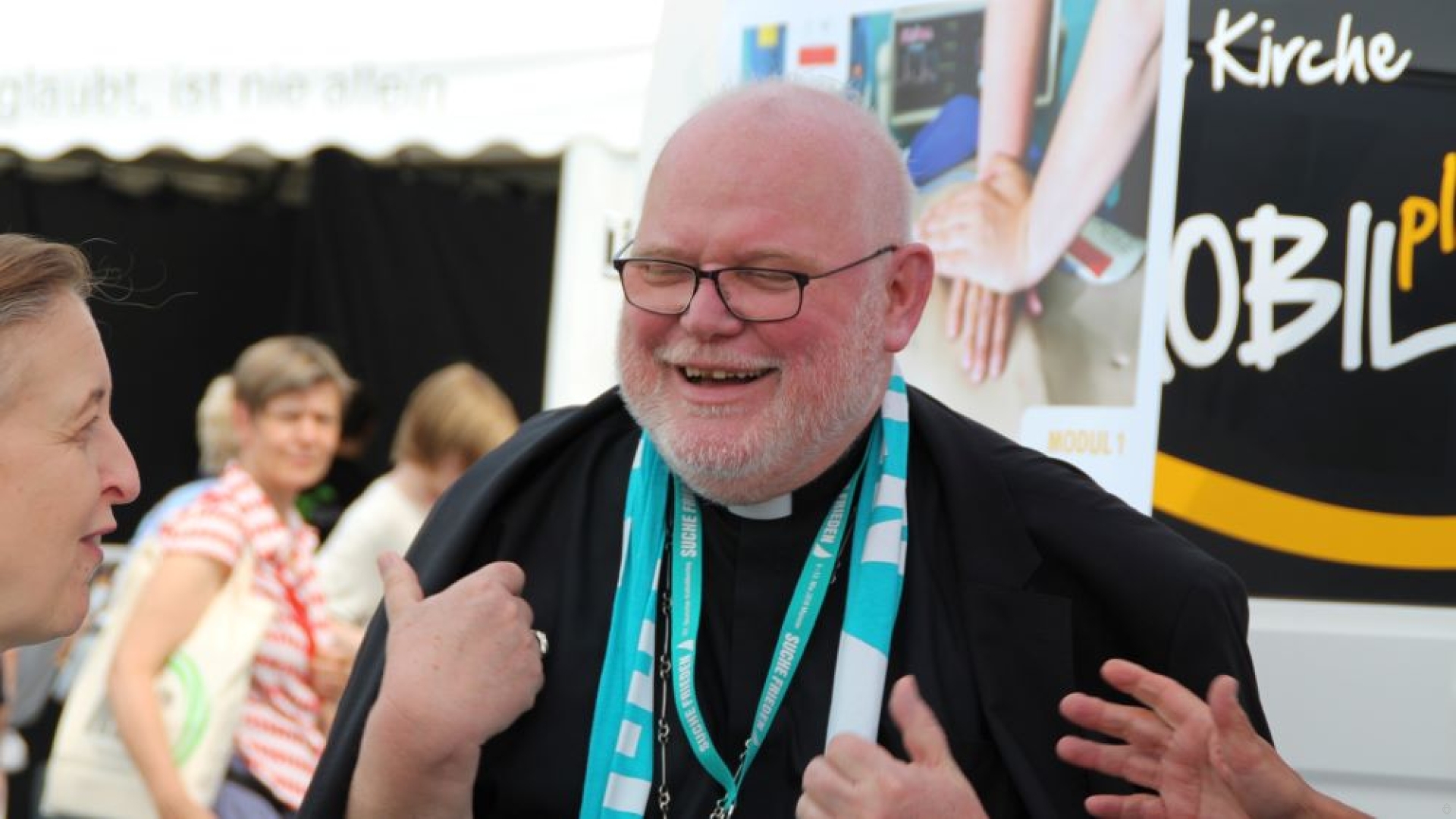Cardinal Marx Shows His True Colors

On May 5, Cardinal Reinhard Marx, member of the C6 – Pope Francis’ special council of cardinals - and archbishop of Munich and Freising, gave an interview to Publik-Forum, an online Catholic magazine with a distinctly modernist tendency.
The topics discussed revolve around the advance of ecumenism, the synodal path - which the cardinal launched - and Rome’s mistrust of this process, the abuses in the Church. In front of this chosen audience, the porporato responds with great freedom.
The Church does not know what she is
The two journalists who lead the interview first question the “diktats of Rome” which, in their opinion, would hamper the progress of ecumenism.
The cardinal asserts that ecumenism cannot regress. He repeats the clichés: “differentiated consensus,” “visible unity in a reconciled diversity.” Or how to make opposites coexist. But one sentence is worth mentioning: “We do not have a clear model of unity to which to aspire.”
The Church which is one in essence, whose unity is sung by all the faithful in the Creed, would not have the model of this unity? In other words, her founder, Christ Jesus, Wisdom Incarnate, would not have left her a model of an essential element? In other words, He did not found the Church.
Responding to the question - which is more of an assertion - that ecumenical theologians claim that the differences between churches have been resolved consensually, Cardinal Marx takes a step back. But he asserts that “the differences can and must remain.” It is primarily a matter of bearing common witness.
It is difficult to understand how a Protestant can “bear witness” to the faith of the Catholic Church. But the cardinal has a solution: we must abandon “confessional narrowness.” We are rediscovering this love of the vague and the undefined, which allows everyone to find themselves in a vast indeterminate whole. But it is no longer about the Church.
Finally, the porporato admits that, in his episcopal beginnings, he wanted “to stick strictly to the standards.” But “much has been relaxed and transformed in ecumenism” since then. And to give an example: “If someone, after having made a conscious decision, takes part in the Catholic Eucharist or the Lutheran Supper, I will have to accept it.”
It must be concluded that the individual conscience is superior to the norms and the law of the Church ...
The Synodal Path
Journalists ask Cardinal Marx why Rome is so suspicious of the German Church. He suggests asking the question directly to the Congregation for the Doctrine of the Faith ...
Then he shows annoyance and confesses his irritation. Thus, he explains, “we received a few minutes in advance the information that a letter from the Congregation for the Doctrine of the Faith was going to be published on the ban on blessing homosexual couples. This is not the way to do it.”
And to explain his thoughts, he adds: “We, the bishops, are not the armed wing of the Congregation for the Doctrine of the Faith; we too want to be heard.” If the supreme authority wants to speak, it must first seek their advice from the bishops?
Then he adds: “But it is clear to us that the guarantor of unity is the Pope.” Which sounds reassuring, but he ends with these words: “And the universal Church is more than a Roman authority.” If we follow his thought correctly, the Pope is the guarantor of unity, but the bishops of the universal Church are above the Roman congregations?
Inevitably, the subject moves towards synodality. Cardinal Marx goes on: “It remains for us to understand what the Synod Church really means.” Does that mean he has no idea? Not at all. “The closed-mindedness of the right and the left also endangers the democratic culture. And also the Church.” The relationship is therefore established between modern democracy and synodality.
An Evolutionary Notion of Faith
The Archbishop of Munich complains: “Rome should have the best theological faculty in the world....All institutions know the temptation to promote people who do not make them uncomfortable. There must be - in the context of Catholicism - free thought.”
At least he has said it. Ignoring tradition, we must be able to evolve freely in theology and faith, which must itself evolve. Further on, the cardinal says it clearly: “I cannot develop a timeless theology, to cite Augustine or Thomas Aquinas without taking into account the time in which they lived.” This is to say that truth evolves with the times, and to profess complete relativism, pure modernism.
The cardinal further explains his thought: “The idea of an institution claiming to know what God thinks is hardly acceptable to man today.”
This is the negation of the Revelation made by the Son of God who told us: “No man hath seen God at any time: the only begotten Son who is in the bosom of the Father, He hath declared Him,” (Jn 1:18). And elsewhere: “no one knows who the Son is, but the Father; and who the Father is, but the Son, and to whom the Son will reveal him,” (Luke 10:22).
It is precisely so that we may know what God thinks, that the Son of God, one God with His Father, has come to bring us His revelation. And He gave the Church the power to pass it on. What today’s man thinks changes nothing. And the only way to accomplish the entrusted mission is to preach the truth to those who are lost.
That a prince of the Church wants to adapt to the modern mindset and put the truth under wraps is nothing new. But that is precisely the whole history of the Church since the Second Vatican Council.
Related links
(Sources : InfoCatolica/Publik-Forum – FSSPX.Actualités)
Illustration : Dreamstime / Jörg Sabel





